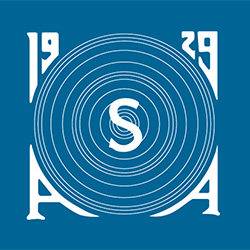Dr Tamara Rathcke from the Department of English Language & Linguistics has just published a research article in the Journal of the Acoustical Society of America, co-authored with Rachel H Smith from the University of Glasgow.
The Journal of the Acoustical Society of America is the leading source of theoretical and experimental research in the interdisciplinary study of sound. The journal was established when the Society formed in 1929, remaining in continuous publication.
The paper is titled ‘Speech Timing and Linguistic Rhythm: On the Acoustic Bases of Rhythm Typologies’. Research into linguistic rhythm has been dominated by the idea that languages can be classified according to rhythmic templates, amenable to assessment by acoustic measures of vowel and consonant durations. The study tested predictions of two proposals explaining the bases of rhythmic typologies: the Rhythm Class Hypothesis, which assumes that the templates arise from an extensive versus a limited use of durational contrasts, and the Control and Compensation Hypothesis, which proposes that the templates are rooted in more versus less flexible speech production strategies.
The temporal properties of segments, syllables and rhythm were examined in two accents of British English, a ‘stress-timed’ variety from Leeds, and a ‘syllable-timed’ variety spoken by Panjabi-English bilingual speakers from Bradford. Rhythm metrics were calculated and a perception study confirmed that the speakers of the two varieties differed in their perceived rhythm. The results reveal that both typologies are informative in that, to a certain degree, they predict temporal patterns of the two varieties.
For further details of the article, and the full abstract, please see the page here: http://scitation.aip.org/content/asa/journal/jasa/137/5/10.1121/1.4919322

